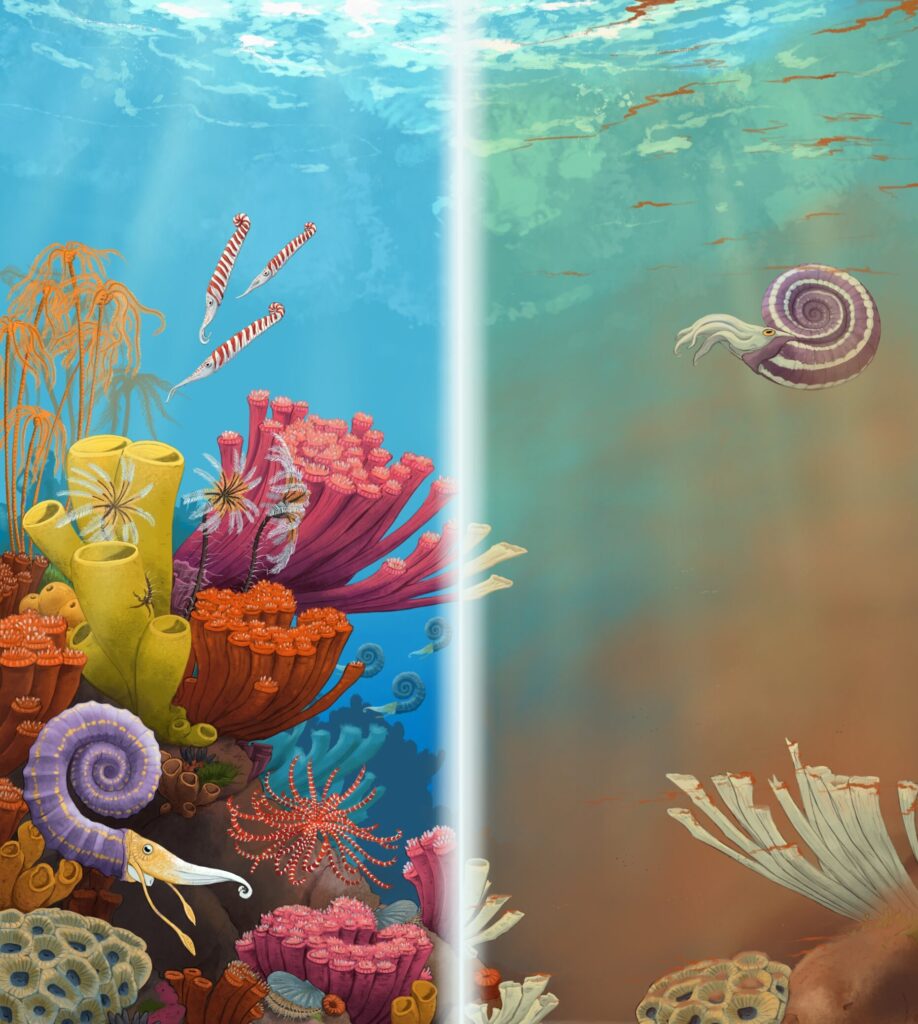St Hugh’s Fellow leads new study revealing insight into which animals are most vulnerable to extinction due to climate change

A new study by a team of researchers at the University of Oxford led by St Hugh’s Tutor in Palaeobiology, Professor Erin Saupe, has used the fossil record to better understand what factors make animals more vulnerable to extinction from climate change. The results, published in the journal Science, could help to identify species most at risk today from human-driven climate change.
Past climate change (often caused by natural changes in greenhouse gases due to volcanic activity) has been responsible for countless species’ extinctions during the history of life on Earth. But, to date, it has not been clear what factors cause species to be more or less resilient to such change, and how the magnitude of climate change affects extinction risk.
The new study sought to answer this question by analysing the fossil record for marine invertebrates (such as sea urchins, snails, and shellfish) over the past 485 million years. Marine invertebrates have a rich and well-studied fossil record, making it possible to identify when, and potentially why, species become extinct.
Using over 290,000 fossil records covering more than 9,200 genera, the researchers collated a dataset of key traits that may affect resilience to extinction, including traits not studied in depth previously such as preferred temperature. This trait information was integrated with climate simulation data to develop a model to understand which factors were most important in determining the risk of extinction during climate change.
Professor Saupe said, ‘The evidence from the geological past suggests that global biodiversity faces a harrowing future, given projected climate change estimates. In particular, our model suggests that species with restricted thermal ranges of less than 15°C, living in the poles or tropics, are likely to be at the greatest risk of extinction. However, if the localized climate change is large enough, it could lead to significant extinction globally, potentially pushing us closer to a sixth mass extinction.’
To read more about the key findings of the research please click here.
